Konya Shamsrumi: What is the process of writing a poem like for you? Is it a lot of hard work or easy?
Echezonachukwu Nduka: Most of my poems are first conceived as whole ideas, often without details. I find that, in writing a poem, it only begins to unravel itself when I spend a while thinking about the idea, reading up on a relevant subject, listening to a particular genre of music, observing people and events, or simply putting pen to paper—while being accompanied by soft classical music in the background, or absolute silence.
I write in longhand, and I like to hear my thoughts when I write. It is often as though I am in conversation with a calm steady voice that insists on the interplay between language and rhythmic structures. When I write, I read aloud to myself to ensure clarity of thought, language, imagery, and musicality. In other words, I am my first audience and critic. I like the fact that I almost never bother about titles when I’m done writing a poem because titles come to me first, and so easily. When I have a title, it sets the poem in motion, and to a large extent suggests what the poem would be about. However, this does not suggest that I get in the way. When I write, I do my best to not interrupt the flow of a poem because I believe that in the course of writing, a poem can go where it pleases and must be allowed to. My duty is to serve and follow the poem, not get in its way.
I like to think of poems as living beings with traits because while some take very little time to write, others take a while—and sometimes I come away with the feeling that I may never finish a poem. I would like to talk about how I consider rewriting a poem quite a bit of hard work, but I would rather not.
Konya Shamsrumi: Please describe your sense of identity in this or any possible world in imagery or metaphor?
Echezonachukwu Nduka: Piano and the djembe. Both instruments connote the sort of biculturalism that best describes my artistic inclinations. Besides the fact that I play both instruments, I am deep in my exploration and performance of solo piano music by African composers whose music for piano extends the possibilities of African indigenous music and instrumentation to new and established frontiers. I am sometimes tempted to think of myself as a river that flows uphill. Or, perhaps, a bag of treasures mixed with ancient sounds and a thousand silences.
Konya Shamsrumi: If any of your poems could literarily save a person’s life, which poem would it be and can you describe the person whose life you think it would have saved?
Echezonachukwu Nduka: Well, I have reasons to suspect that none of my poems can literarily save a person’s life.
Dying persons might read my poems and find themselves in the stanzas, find a new revelation on life and death, or perhaps come away with more questions than they had before. If any of my poems could literarily save a person’s life, I would be most amazed by both the poem and the person whose life it saved. That would be nothing short of a miracle!

Konya Shamsrumi: What does Africa mean to you, as potential or reality?
Echezonachukwu Nduka: Complex. Historic. Diverse. Rich. . . Hope. Perseverance. Hallmark of cultural legacies. Revival. Vibrant youth. Poor political leadership. The continent is an overwhelming web of paradoxes. I like to think of Africa as loud drumbeats that keep re-echoing, in spite of efforts to shut off the sound. Africa is not only the dance bank that fascinates the world with each new step, it’s also the fundamental rhythm to which all of the world must connect.
Konya Shamsrumi: Could you share with us one poem you’ve been most impressed or fascinated by? Tell us why and share favorite lines from it.
Echezonachukwu Nduka: One of the poems I’ve been most fascinated by would be No. 8 from the section on “Histories” in Chris Abani’s Sanctificum. The collection itself is one of my favorite poetry collections and, quite frankly, there are poems in it that often make me want to write my own poems. The particular poem I refer to speaks of the debasement of the human condition to the extent that we have become accustomed to death and blood, so much so that we no longer feel indicted by our collective insensitivity. This has, in many ways, reduced the value of human life in some societies. How many times have we heard or read about the preventable deaths of people and changed the channel or flipped to the next page as if the deaths of human beings deserve no attention? This is true for many people.
Here are my favorite lines from the poem:
Blessed are the undefiled in the way. There are two ways to view the body. Resurrection and crucifixion. Everything that falls between is ritual.
Echezonachukwu Nduka, poet and pianist, is the author of two full-length poetry collections Chrysanthemums for Wide-eyed Ghosts(Griots Lounge, 2018), andWaterman(Griots Lounge, 2020). He holds degrees in Music from the University of Nigeria, Nsukka and Kingston University London, UK. In 2016, he was awarded the Korea-Nigeria Poetry Prize on World Poetry Day. Hailed by Guardian Life Magazine as Artist Extraordinaire, Nduka’s literary works have been published in The Indianapolis Review, Transition, Bombay Review, Saraba Magazine, Jalada Africa, Kissing Dynamite, Sentinel Literary Quarterly, Maple Tree Literary Supplement, Bakwa Magazine, 20.35 Africa: An Anthology of Contemporary Poetry Vol. II, First Wave: Beach Bards Anthology, and A Thousand Voices Rising: An Anthology of Contemporary African Poetry, among others. He is the host of Poetry in Minutes, a weekly Friday poetry show produced by Apotheosis Art House. Find out more about him on his website: www.artnduka.com
- Poets Talk: 5 Questions with Kayeon Onyeka - February 25, 2025
- Poets Talk: 5 Questions with Jakky Bankong-Obi - December 3, 2024
- Poets Talk: 5 Questions with Odu Ode - November 26, 2024






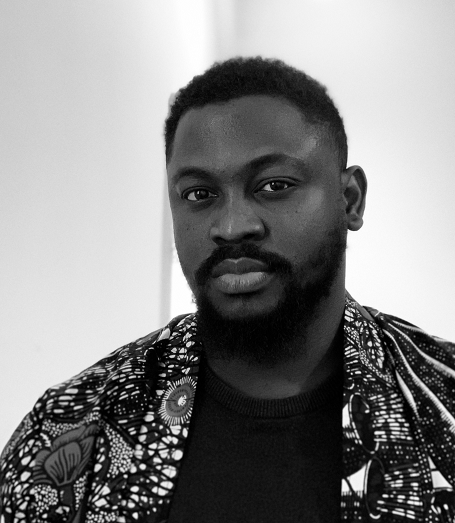
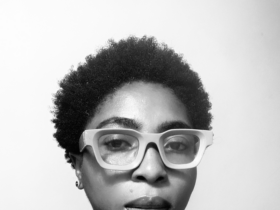
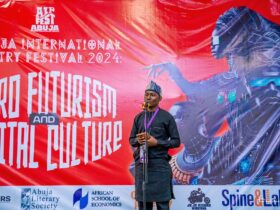
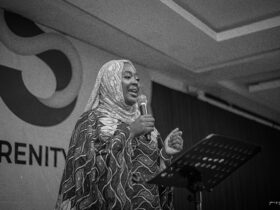
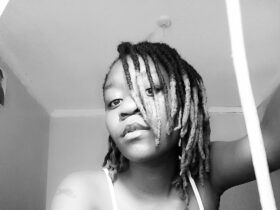
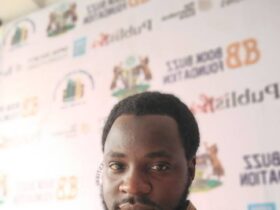

Leave a Reply